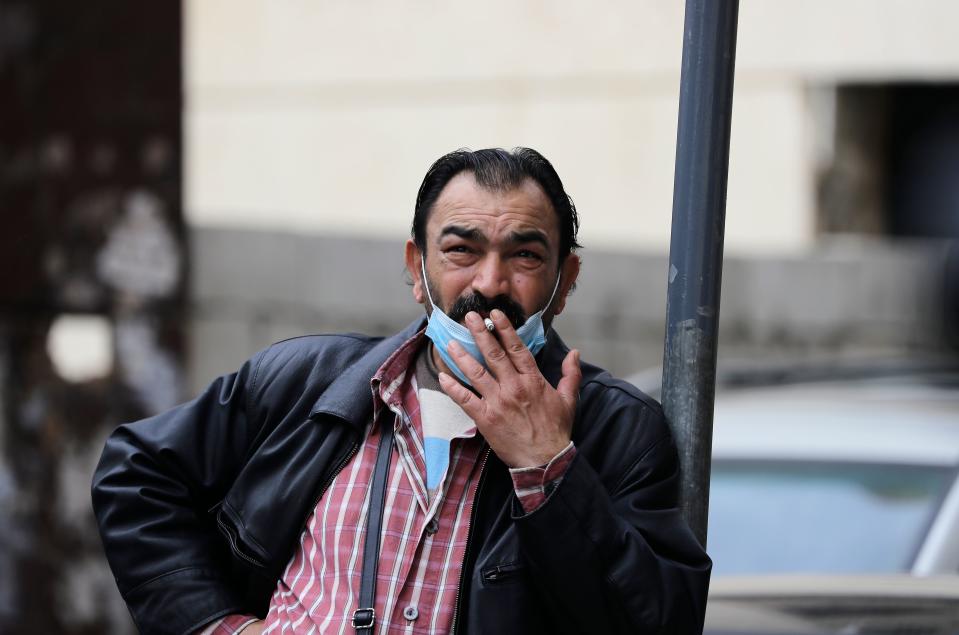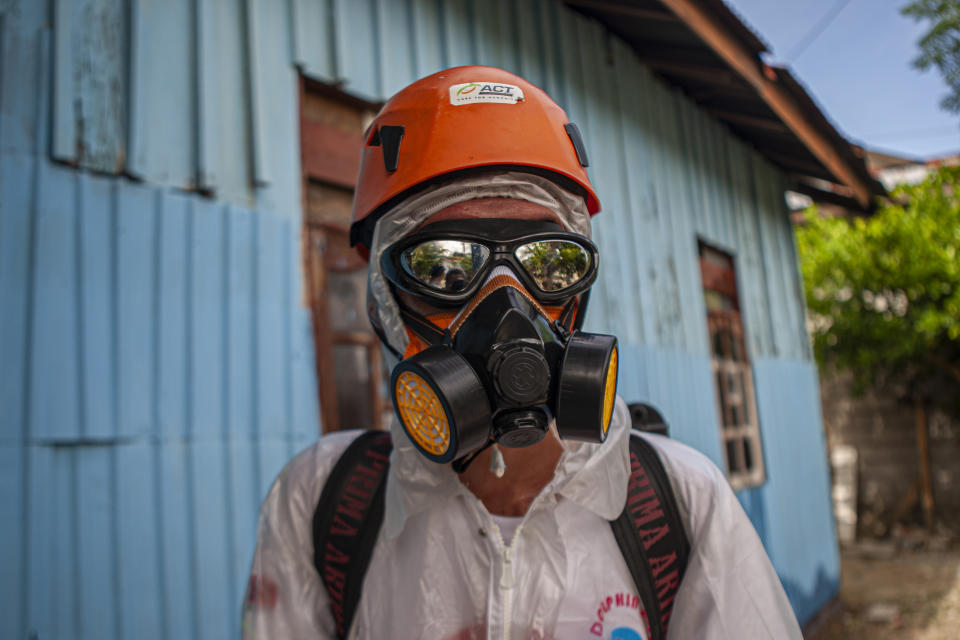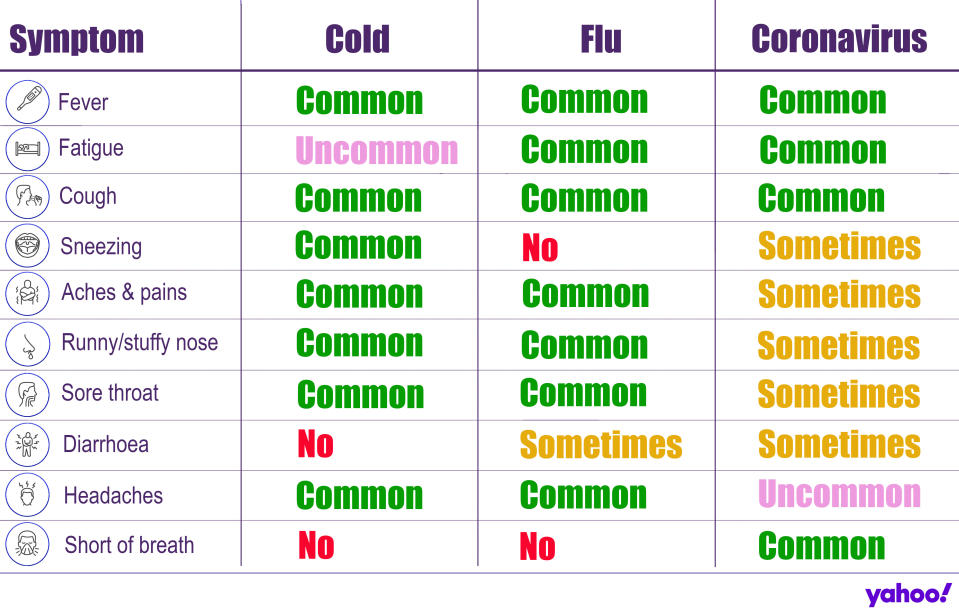Coronavirus: ‘Abundantly clear' smoking makes ‘impact of infection worse’
Smokers are being urged to quit amid the coronavirus outbreak.
Early research suggests the infection is mild in four out of five cases, with a relatively small number of patients developing complications.
The vast majority of deaths are occurring among the elderly and already ill.
This prompted Boris Johnson to tell 1.5 million vulnerable Britons to stay at home for three months on Saturday.
Severe asthmatics, organ-transplant receivers and blood-cancer patients are just a few of those urged to self-isolate entirely.
While smokers are not generally being considered an at-risk group, this is “a very good moment” to quit.

Latest coronavirus news, updates and advice
Live: Follow all the latest updates from the UK and around the world
Fact-checker: The number of COVID-19 cases in your local area
Explained: Symptoms, latest advice and how it compares to the flu
The coronavirus is thought to have emerged at a seafood and live animal market in the Chinese city Wuhan, capital of Hubei province, at the end of last year.
It has since spread worldwide, with cases being confirmed in more than 160 countries across every inhabited continent.
Since the outbreak was identified, more than 341,700 people have tested positive for the virus, of whom over 98,800 have “recovered”, according to John Hopkins University data.
Cases have been plateauing in China since the end of February, with Europe now the epicentre of the pandemic.
Italy alone has had more than 59,000 confirmed cases, with over 650 people dying from the infection just on Sunday.
Globally, the death toll has exceeded 14,700.
In the UK, more than 5,600 people have tested positive for the virus, of whom 281 have died.

Coronavirus: ‘a very good moment’ to quit smoking
“It is abundantly clear from the research into previous coronaviruses that smoking makes the impact of a coronavirus worse,” said Matt Hancock, secretary of state for health and social care.
The coronavirus behind the ongoing pandemic is one of seven strains of a virus class that are known to infect humans.
Others include the common cold and severe acute respiratory syndrome (Sars), which killed 774 people during its 2002/3 outbreak.
“If you are going to give up smoking, this is a very good moment to do it,” said Professor Chris Whitty, chief medical adviser for the UK.
While stop-smoking services may have shut up shop, the NHS and Action on Smoking and Health (Ash) have tips on how to combat the habit.
“This is a worrying time for all of us and people are looking for what they can do to protect themselves and protect others,” said Deborah Arnott, chief executive of Ash.
“For smokers, quitting or temporarily stopping during this outbreak is one of the best things they could do right now.”
In the UK, around 7.2 million adults (14.7%) smoked cigarettes in 2018.
The situation is similar in the US, where 34.2 million (13.7%) people aged 18 or over lit up.
GP Dr Charlie Kenward from Bristol is urging patients to #QuitforCovid.
COVID-19 is the name of the disease the coronavirus can trigger.
“I was in surgery talking to a mother with her nine-year-old son,” said Dr Kenward.
“She works as a carer so I asked if she was worried about the virus.
“She said she was worried about catching it because she is a smoker.
“I asked her, why not quit?
“She looked at her son who looked back at her and nodded. This is something all smokers can do now so that’s why I’m asking smokers to #QuitforCovid.”
The coronavirus emerged just a few months ago, with no one having immunity.
While smokers are no more likely to catch the virus, they could be at greater risk of complications, some of which are life-threatening.
Experts have also warned against sharing cigarettes.
“The cigarette or roll up acts as a vessel for viruses, and the hand and mouth exposure means saliva and droplets can be easily and repeatedly taken from one smoker to the next,” Dr Sharon Cox from London South Bank University wrote in the BMJ Opinion.
The coronavirus mainly spreads face-to-face via infected droplets coughed or sneezed out by a patient.
There is also evidence the virus can survive on surfaces.
Contaminated hands may also cause an individual to “infect themselves” if they touch their eyes, nose or mouth.
Discarding cigarette ends on the street also raises the risk of exposure to the virus, particularly among the homeless, added Dr Cox.

Why could smokers be at greater risk of coronavirus complications?
Smoking damages the lungs, reducing their function.
“Lungs naturally produce mucus, but people who smoke have more and thicker mucus that is hard to clean out of the lungs,” according to Quit.org.
“This mucus clogs the lungs and is prone to becoming infected.
“Smoking also affects the immune system, making it harder to fight infection.”
By suppressing the immune system, it is less able to fight off any pathogen, including viruses.
The coronavirus is an infection of the airways.
In some cases, the virus spreads to the air sacs in the lungs, where gas exchange takes place.
The air sacs then become inflamed and filled with fluid or pus, making it harder to draw in air.
This can cause oxygen levels in the blood to fall dangerously low and carbon dioxide to accumulate.
As well as being more likely to catch infections, the pathogens tend to linger longer and be more serious in smokers.
“Stopping smoking also helps improve heart and lung conditions, wound healing and many other health conditions, which will carry on at the same time as [the coronavirus],” said Dr Kenward.
“Stopping smoking remains the single most effective thing people can do to improve their and their family’s health both now and in the future.”

What is the coronavirus?
The coronavirus tends to cause flu-like symptoms initially, such as a fever, cough or slight breathlessness.
While it mainly spreads via coughs and sneezes, there is also evidence it may be transmitted in faeces and urine.
Most cases are mild, but pneumonia can come about if the infection spreads to the air sacs.
The coronavirus has no “set” treatment, with most patients naturally fighting off the infection.
Those requiring hospitalisation are given “supportive care”, like ventilation, while their immune system gets to work.
Officials urge people ward off the infection by washing their hands regularly and maintaining social distancing.




